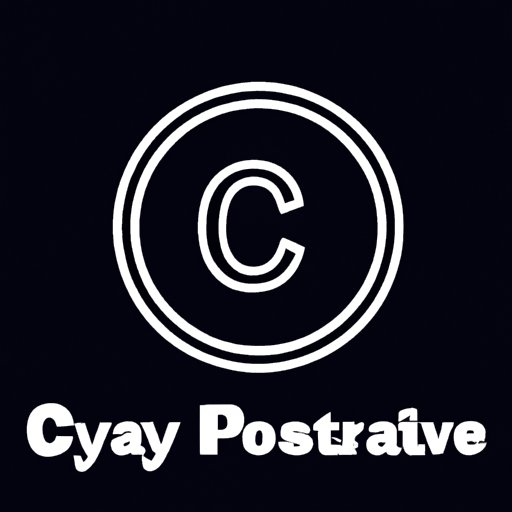Introduction
Creative Commons (CC) is a nonprofit organization that enables creative works to be shared legally and freely. It provides free legal tools that allow copyright holders to give permission for others to share, use, and even build upon their work without having to ask for permission. The CC licenses are designed to make it easy to understand the rights associated with any particular work. This article provides an introduction to Creative Commons, the basics of copyright and creative licensing, and how it is changing copyright law.

Exploring Creative Commons – What You Need To Know About Copyright
Copyright is the legal right that protects original creative works, such as books, music, art, and software. It gives the creator of the work the exclusive right to reproduce, distribute, and perform the work, as well as the right to create derivative works based on the original. In most countries, copyright is automatically granted when the work is created, but in some countries, registration or other formalities may be required.
In order to protect the copyright of a work, a creator must have a clear understanding of the different types of Creative Commons licenses. Creative Commons licenses are designed to give creators more control over how their work is used. These licenses grant certain rights to users who wish to use the work. For example, some licenses allow the work to be used for commercial purposes, while others restrict its use to non-commercial purposes.
The four main types of Creative Commons licenses are Attribution (CC BY), ShareAlike (CC BY-SA), NonCommercial (CC BY-NC), and NoDerivatives (CC BY-ND). Each license has different requirements regarding attribution, distribution, and modification of the work. It is important to understand the differences between these licenses before deciding which one to use.

How Creative Commons is Changing Copyright Law
As Creative Commons has become more popular, copyright law has had to adapt to the new way of sharing creative works. Recent changes to copyright law have made it easier for creators to share their works online and have given users more freedom to use and modify them. For example, some countries have adopted a “fair use” exception to copyright law, which allows for the limited use of copyrighted material without permission from the copyright holder.
The impact of Creative Commons on copyright law has been significant. By providing clear guidelines for how a work can be used, Creative Commons has helped to reduce confusion about what is permissible under copyright law. It has also allowed users to access a wider range of content than was previously available, as creators have felt more comfortable releasing their work under a Creative Commons license.

Creative Commons: A Brief Overview of Copyright and Licensing
Before using a Creative Commons license, it is important to understand the basics of copyright and licensing. Copyright law grants creators exclusive rights to their work, including the right to reproduce, distribute, and modify the work. Creative Commons licenses provide a way for creators to give permission for their work to be used in certain ways without having to give up their copyright.
There are several different types of Creative Commons licenses, each of which has different requirements regarding attribution, distribution, and modification of the work. It is important to read the terms of a license carefully before using it to ensure that you are following all of the requirements. Additionally, it is important to note that Creative Commons licenses do not affect the copyright of a work; they only provide additional freedoms to users.
Creative Commons: The Basics of Copyright and Creative Licensing
When using a Creative Commons license, there are several things to keep in mind. First, it is important to make sure that the work is covered by the license. Creative Commons licenses cover only the rights granted by copyright law, so if a work is not protected by copyright, it cannot be licensed under Creative Commons. Second, it is important to make sure that all of the conditions of the license are being met. Third, it is important to understand the scope of the license; some licenses limit the use of the work to non-commercial purposes, while others allow for commercial use.
Once you have determined that the work is eligible for a Creative Commons license, the next step is to obtain a license. There are several steps involved in obtaining a Creative Commons license, including registering with the Creative Commons website, selecting the type of license, and submitting the license. Once the license has been submitted, it will be reviewed and approved, and the work will officially be licensed under Creative Commons.
Conclusion
Creative Commons is an innovative way for creators to share their work with the world. By providing clear guidelines for how a work can be used and distributed, Creative Commons has made it easier for creators to protect their work and for users to access a wide range of content. Understanding the basics of copyright and Creative Commons licensing is essential for anyone who wishes to use or create works under Creative Commons.
(Note: Is this article not meeting your expectations? Do you have knowledge or insights to share? Unlock new opportunities and expand your reach by joining our authors team. Click Registration to join us and share your expertise with our readers.)
